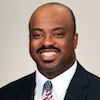01 Feb 2014 Black History Month Makes a Mockery of Black History, by Stacy Swimp
 During “Black History Month” most people focus on black America’s “heroes.” Stories are shared about the past, or what some call the “black experience” in America.
During “Black History Month” most people focus on black America’s “heroes.” Stories are shared about the past, or what some call the “black experience” in America.
Unfortunately, Black History Month seems to have become a mechanical celebration of a few people and a few things that are deemed appropriate by the media and black establishment.
This tired programming doesn’t do justice to the vision of Dr. Carter G. Woodson, the founder of “Negro History Week” — the precursor to Black History Month.
I suggest that merely heralding a few black heroes and situations is a perversion of the reason Negro History Week was originally created back in 1926.
The great Dr. Woodson believed we study black history to learn an historical perspective to use to deal with modern problems and practices.
Dr. Woodson wanted black Americans to understand where we came from, who we were and what we had done so that we might also understand where we really are, who we really are and what we can do today as well as where we still need to go, who we still need to become and what still must be done.
Negro History Week, as Dr. Woodson saw it, was not simply a commemoration or a celebration — it was a call to action.
His hope was that, by learning the valuable lessons of history, we would not make the same mistakes. Likewise, studying history and learning about the struggles of the past should motivate us to take some level of personal responsibility in making our home, neighborhood and society at-large a better place to live, work and play.
In his speech to the National Urban League’s annual conference on September 6, 1960, Dr. Martin L. King, Jr. provided a strong indictment of the black community’s failure to honor heroes with personal integrity and dignity rather than with phony ad hoc observances, saying: “The Negro must make a vigorous effort to improve his personal standards… One of the sure signs of maturity is the ability to rise to the point of self-criticism.”
We are suffering today for not properly studying, understanding and acting in response to the lessons of yesterday.
As a result, too many of us have become cynical and disillusioned. Some of us have conditioned ourselves to perpetuate a system of segregation. We have lost touch with an important something that’s called initiative.
Too many now cite the oppression of the past as an excuse for modern mediocrity.
Many of us also live beyond our means, spend money on frivolities and fail to give to serious causes, organizations and educational institutions that so desperately need our charity.
In that same 1960 speech to the National Urban League, Dr. King said: “Our crime rate is far too high.”
It is indeed an insult to the legacy of so-called Black History Month heroes that so many of us claim to honor when we too often live our lives in direct contrast to the values and principles that they challenged us to maintain.
Black History Month celebrations, in my opinion, have all-too-often become something other than an honorable commemoration.
It’s not an outright mockery, but the ways we sometimes behave would surely disgust Dr. Woodson and the people about whom he sought to teach us. They would be disgusted at how their contributions are increasingly being wasted.
If they saw how we commemorate Black History Month today, I think our forefathers might say: “Keep your fake celebrations. Try practicing some integrity and self respect.”
# # #
Stacy Swimp is a member of the national advisory council of the Project 21 black leadership network. Comments may be sent to [email protected].
Published by the National Center for Public Policy Research. Reprints permitted provided source is credited. New Visions Commentaries reflect the views of their author, and not necessarily those of Project 21, other Project 21 members, or the National Center for Public Policy Research, its board or staff.



